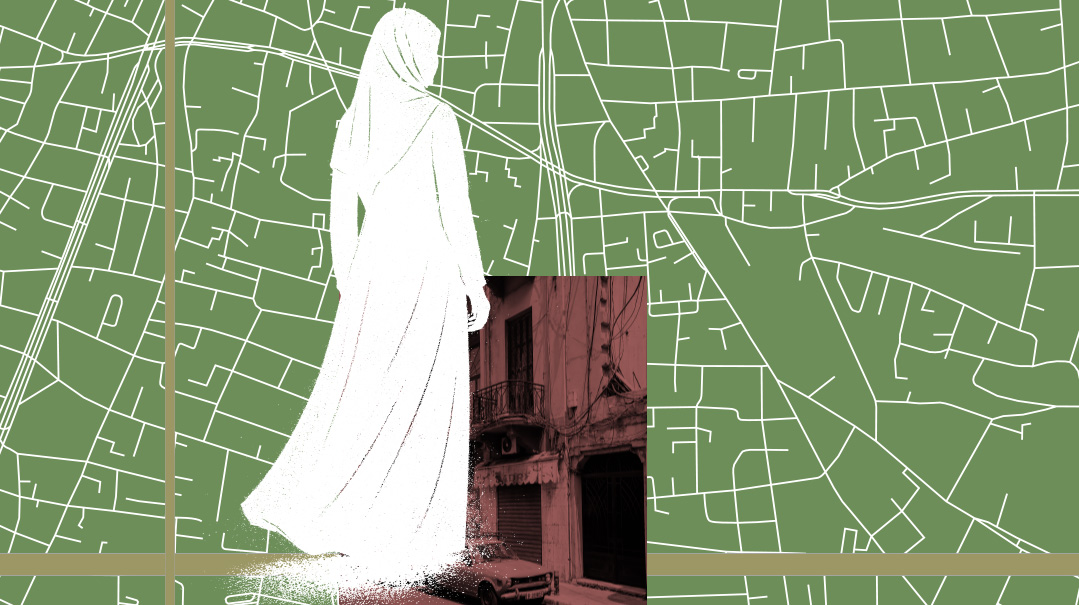Let Them Grow and Let Them Go

What’s your role in your child’s new life? Is there still parenting left to do once your child has married?

Mother For Life
Miriam Kosman
When asked to write about mothering marrieds, my first instinct was to decline, because pontificating on parenting in a magazine would make it pretty embarrassing to mess up. I have to admit that when reading columns about relationships, a little voice inside me wonders if the writer’s spouse or children are snickering in the background.
Another problem with pontifications is that so much about our relationships aren’t in our control. Like anything else we take pride in, successful parenting often has much more to do with gifts we were given by Hashem and much less (than we’d like to admit) to do with our skills, principles, and theories. In fact, I think most honest parents would agree that when things do turn out okay, it’s more despite the mistakes we so often make than because of any brilliant choices on our part.
Yet, ideas kept whirring around in my head because the incredible-not-to-be-taken-for-granted gift of mothering marrieds can be such a rich and beautiful experience. Here is an adult, your child — on the one hand, so much a part of you, and on the other, so completely (and often, surprisingly) different than you. And here’s another adult, your in-law child — so completely not you (product of a different family culture, background, mindset) but on the other hand, often occupying the place in your heart reserved for birth children.
Mothering marrieds is yet another permutation of the endless dance between the poles of connection and differentiation. I offer the following three thoughts less as theory or advice, and more as meditations on the intricacy of the steps.
THE ADULT IN THE ROOM
The first principle about parenting is that beyond the parent’s actual halachic obligations, it’s clear that the Torah casts a parent in the role of the giver; a parent is supposed to be continuously focused on what will benefit the child.
When our children were young, the giver / receiver dynamic was much less confusing. Reading Good Night, Moon for the 84th time, or swooping spoons through the air like airplanes clearly wasn’t for our own pleasure. But as our children become gratifying adults — and our own lives perhaps become less full — the bestower and receiver dynamic often gets tangled.
It’s important to keep in mind that being a giver has much less to do with the transfer of a commodity and much more to do with the (oh-so-dependent-on-self-awareness) question: Where is my focus? Is my goal to satisfy my own need (to feel needed / to protect myself from the discomfort of my child’s failure / to share my wisdom / to give me a sense of meaning, etc.) or to fulfill a real need for my child?
It’s fine — and normal, and very human — if the answer to that question is a combination of all of the above, as long as we’re honest about it to our children, or at the very least, to ourselves. What gets sticky (and potentially unhealthy) is when we’re really taking but are masquerading it as giving.
A good gauge to motivation is to check your passion level. Do you need the child to take your advice? Is it crucial that your child do it your way? Are you desperate to know what’s going on? Other-focused help should be dispassionate: I’m here if you need me, but as soon as you don’t, I return to my own satisfying life.
And, as an aside, having your own satisfying life to return to is probably one of the most important elements in the dynamic of mothering marrieds. Not needing your children to fill your time and sense of purpose allows you to be more focused on their needs and more honest about your motivations.
I FEEL THEREFORE I AM
Years ago, you began your journey of motherhood by allowing this human being physical space to grow, develop, and change inside you. Allowing your child the emotional space to grow, develop, and change, as adults — while not involving varicose veins and heartburn — can still be challenging.
All human beings — even those who were perfectly parented (if such people exist) — experienced pain and trauma. Indeed, memories are often less about what actually happened and more about how the person subjectively felt. Getting lost in the mall, for example, is terrifying for a four-year-old, even if objectively, it wasn’t his mother’s “fault.” Rehashing memories, especially with people who were actually there, is a powerful way to gain perspective on life.
Mature adults are often staunchly protective of their parent’s feelings and may even edit their memories to protect you and your self-image. Mature adults tend to be self-aware enough to know that they themselves might not have not done any better in the given circumstances. But who is mature all the time? The heart has its own language, narrative, and history.
When your children tell you that the fact that you put them to sleep early / let them stay up late; always went to their PTA meetings / never went to their PTA meetings; had them sleep in their own room / had them share a room, etc., traumatized them for life, try to move out of fact-checking mode and into making-space-for-feelings mode. This is their life. These are their memories. This isn’t about facts; it’s not about you or the marks you get.
And here’s a fascinating reality. Technically, you can’t go back in time and redo their childhood, but if you can make space for your child’s narrative — and not argue / become defensive / explain away their experience — you may be able to retroactively reach back through the years and hug that tiny child in pain whom you yearn to comfort; indeed that child still lives inside your adult child.
IT’S NEVER OVER UNTIL IT’S OVER
Up to a certain age, you could perhaps nudge your child about what time to get up, what she should wear, and how to sit at the Shabbos table (I said could, not should). But once they’re adults, and certainly once they’re married, those days are over.
But here’s the news: Parenting isn’t over. Whether we like it or not (and, honestly, the thought is a little scary), parents have an outsized, almost ridiculous impact on their children’s mindset.
On a technical level, we see this in the way that we often ascribe hallowed status to the way our own parents did things — convinced that there’s a “right” way to set the table, deal with finances, or go on vacation, even as on a conscious level we know that this isn’t really about “right” or “wrong,” only about the halo our hearts have painted around our childhood.
Yet even beyond these technical issues, who our parents are and what and how they do it very powerfully affects our (often unconscious beliefs) of what we, ourselves, are capable of doing and being. How our parents dealt with challenge or loss; how much effort they put into their own marriages; whether they did or didn’t throw in the towel on their struggles with bad habits; how they spent their time; what their values were; and even how they lived their last days when their strength was ebbing away, become the unconscious lodestone against which we measure ourselves as we move through life. It’s important for parents of adult children to know this: You’re under surveillance! Your children are watching and listening and absorbing, and this is true whether you — or they — are aware of it.
Becoming a mother is a one-way journey. Mothering places us forever in a cosmic role of influence. It is never too late to model for our children what it means to be a changing, growing Jew.
Miriam Kosman is the author of Circle, Arrow, Spiral, Exploring Gender in Judaism and a lecturer for Nefesh Yehudi, an Israeli outreach organization.
I really appreciated when you ________
Never demanded we use a particular name when naming our babies. You were grateful when we used a family name — but never criticized if we chose not to.
Came to visit and took our kids out on a full-day trip and didn’t expect us to come along, which gave us a much-needed break.
Learn with or shmooze with my children over the phone, putting in an effort to build a relationship with them.
Instilled in me certain standards that are second nature for me to now implement with my own children. As a parent now, I realize how hard it was to stay firm in what you believe in even when it isn’t the easy way out.
Pointed out my spouse’s good traits to me and tell me each time you appreciate something about him (specifically when he’s not around. It feels more genuine).
I know you expect us to ____, but ______
Bring a dish or two whenever we come for Shabbos. I want to and I try to, but sometimes I’m completely drained, particularly in the beginning of a pregnancy, and it would mean so much if you could say “just bring yourselves,” so I have that option if I need it.
Come to you more for Shabbosim, but with so many kids and schedules to juggle, it’s difficult.
Share any good news right away, but sometimes we want to process on our own before letting our parents into the circle.
Please do not take it personally when ______
We stay home for Yom Tov. As much as we love spending time with you, international travel puts a strain on all of us.
My spouse and I need to go to a separate room to discuss something.
We decide to do what’s best for our children at the expense of extended family time
We go to the other side for Yamim Tovim. There are so many factors to balance — it’s never an easy decision.
No Strings Attached
Rebbetzin Michal Cohen
When it comes to mothering our married children, there are two very insightful thoughts from the Harav Mattisyahu Salomon shlita, mashgiach of Beis Medrash Gevoha, published in his sefer With Hearts Full of Love, that can guide us.
The first principle the Mashgiach shares is that when it comes to our avodas Hashem, yirah comes before ahavah. When it comes to the chinuch of our children, the thrust is ahavah. Our children have to feel our undying and unconditional love. If the main focus is fear, we run the risk of breaking — and perhaps losing — our children…
The next principle Harav Mattisyahu shares is that when it comes to doing mitzvos, doing them “shelo lishmah” has value, as it will lead to doing the mitzvah for the correct reasons. But when it comes to chinuch, lo lishmah has no value, and is actually destructive.
Hashem can be content to have people serve Him even shelo lishmah as He knows it will lead to lishmah. But a child doesn’t have the ability to exercise this kind of patience. He must feel that what he’s being told to do is for his good only, and for no other purpose. Our children must feel that we’re acting in their best interest. We need to focus on what makes our children stronger and more secure, not what makes us feel good.
Although the Mashgiach was likely referring to younger children, I think these principles apply equally to our married children. They too need to feel our unconditional love, and they need to feel that we’re directing them exclusively for their own good.
When we were blessed with our first child, my husband shared the good news with one of his rebbeim. After the mazel tovs were exchanged, his rebbi said, “Now life really starts.” When my husband asked for an explanation, his rebbi said, “You can fool your parents, your friends, and even your rebbeim, but you can never fool your children!” Our children have a very sensitive radar. They can see and feel clearly what our intentions are. They need to constantly feel that our motivation is for their sake only.
The challenge here is great. Making our adult children feel unconditionally loved is by no means simple. Unconditional love means we love our children no matter what they look like, no matter how they chose to live their lives or raise their families. It’s a tall order. Directing them in ways that make it crystal clear that what we’re saying is only for their own good and not tinged with our own needs is challenging!
Sometimes we aren’t even aware of our own needs. We think we’re doing this for them, but really we’re doing it for ourselves. (How many times have you been told by someone giving you hurtful, unsolicited advice that they’re doing it for your own good?)
Take, for example, the story that ran in this magazine a while back about a mother coming to “help” her daughter after she had a baby. The mother made a kiddush that was way above her daughter’s comfort level. Whose need was she filling: Her daughter’s or her own? She also managed to make her negative opinions about her daughter’s parenting style very obvious. How helpful could that have been to her postpartum daughter? We need to learn to allow our adult children to do things their way even if it makes us uncomfortable.
A friend shared with me her angst about her adult child’s decision not to join them for the whole Yom Tov. Due to space constraints, the family would have to stay at a neighbor for the first days and then move into the parents’ home for the rest of Yom Tov. The couple told their parents that the stress of unpacking and packing and moving felt too overwhelming, and they would prefer to stay home for the first days instead.
The mother asked me why her kids couldn’t inconvenience themselves to make her happy. But whose needs come first here? Parents who want their kids for all of Yom Tov or the adult kids who prefer to stay at home? I helped her see how great it was that her kids could tell her what would work for them, and that she needed to hear it. I told her she should feel proud they felt safe enough to share their feelings with her.
We all know the stories of parents who put conditions on the money they give their kids. You can buy a house, but it needs to be in the area that I chose. Or I’ll buy clothing for your kids, but you need to make sure they’re always matching… This kind of behavior erodes our children’s belief that we love them unconditionally and are acting in their best interests.
The cliche statement that we should “keep our wallet open and our mouths closed” when dealing with our adult children is too simplified a way to look at this. We do have a lot of sage advice to offer, but we need to seriously consider when and how to share it with our adult children.
The best predictor of how much our children will be willing to listen to us is through how much we’re interested in listening to them. If we listen, they’ll feel heard. When they feel heard, they’ll feel good about themselves and do so much better in life. They’ll then likely trust us because they know how much we love them (unconditionally), and they’ll know we’re acting in their best interest (chinuch lishmah!) And at that point, they’ll likely come to us when they need advice; we won’t have to give it unsolicited.
Learning takes place best by example. Let’s show our adult children how much we love them and respect them and care about them — they will then do the same for our grandchildren, and that will be our greatest nachas.
Rebbetzin Michal Cohen LCSW is the rebbetzin of Congregation Adas Yeshurun in Chicago where her husband Rabbi Zev Cohen has been the rav for decades. She is a licensed clinical social worker in private practice counseling individuals, couples and families, for over 25 years, and teaches kallahs and trains kallah teachers under the auspices of Daughters of Israel.
You probably don’t realize that it’s hard for me when you _____
Discipline my children. Yes, they’re in your home, and they’re acting up. But I’m right there, and I see it too. If I’m ignoring it, it’s probably for a good reason. As long as they aren’t harming anything in your home or insulting you in any way — i.e. if it’s just between the kids — can you leave the discipline to me?
Tell me I should have more help. I know you mean well and only want things to be easier for me, but it makes me feel as though you disapprove of the way I run my home, or think I’m an incompetent housekeeper.
Make critical or joking comments about my spouse in front of them; I know you think they’re innocuous, but they hurt.
Suggest that my children need any kind of professional help. I know you mean well, but we just. Don’t. Want. You. Commenting.
Compare my home/relationship/kids to others, even when it’s done subtly. “Did you realize she …”
Talk to me about problems that other siblings are going through. It makes me feel uncomfortable, as though we’re betraying their confidence. And it makes me less likely to confide in you about my own problems, knowing that you may share them with my siblings.
Obligate me to attend various events. We’re at different stages in life, but I’m sure you remember what it’s like having to make babysitting arrangements — and also how hectic the life of a young mother is. I hate disappointing you, and I know you want me to attend because you love me and enjoy spending time together. (And I do too!) But it’s hard for me, and even when I make the tremendous effort to attend, I can’t help feeling resentful.
The Final Challenge
Rebbetzin Debbie Greenblatt
When my youngest child was born, my pediatrician and close friend, taking note of a changing world, said, “Debbie, your job is to keep her safe.” Those were my marching orders; I never forgot them.
When our children are small, our roles are defined. But what happens when they become adults and establish homes of their own? What’s our role then?
Just as we understand that parenting a toddler is different than parenting a teenager, it’s logical to assume that parenting a married is equally different. Understand that your married child’s obligations have shifted. Their first obligation is now to their spouse. “V’azav ish es aviv v’es imo, a man shall take leave of his father and mother.” That creates the space for the next part of the verse, “v’davak b’ishto, and he shall cling to his wife.”
As much as creating that space for our children to successfully build their own marriages and homes makes sense rationally, it’s not always easy emotionally. There’s a deep, spiritual reason we may find this challenging. Letting go is the spiritual challenge of femininity. Heh, the letter that represents feminine spiritual energy, has two openings. When a woman is doing her job, she grows her child, first within her body, and then within her home — and then lets him or her go at the appropriate time.
Not letting them go is the misuse of the feminine energy. It closes what should be open. The heh becomes a closed circle, closer to a samech. The first time a samech appears in the Chumash is in the pasuk, “Vayisgor basar tachtena,” when Hashem was forming Chava: He closed the flesh under her. A woman is always creating and letting go. Each new stage is a birth, and like a birth, has joy and pain mixed together.
Think about how happy you were when your first son became engaged. You were excited to start building a meaningful relationship with the fine young woman your son was engaged to. Why, then, did you find yourself alone in your car, suddenly bursting into tears when the traffic light turned red? You wouldn’t have it any other way, yet there’s pain mixed in with the joy.
What Remains
What role remains for you? The prophet Yeshayah (66:13), in foretelling how Hashem will ultimately comfort Tzion, compares Hashem’s actions “k’ish asher tinachamenu imo — to a man who is comforted by his mother.” The commentators take note that the word “ish” connotes a grown and important man. Our adult children, with all their accomplishments, still need the comfort of a mother, someone to turn to, who empathizes with their problems big and small, who believes in them and encourages them.
We want our children to stay close to us, to come visit or encourage us to visit them. Pouring on sincere positivity and honest compliments is the best conduit to fueling good relationships. Our validation means so much to them. Make them succeed at gaining your approval; it’s the best way for them to continue to try to earn it. Approval keeps the door open; judgement shuts it closed.
Before You Correct
The Big Debate in parenting married children is if and to what extent you should tell your married children when you’re upset with them or disapprove of their actions. Examining that debate is far beyond the scope of this article and the limits of my wisdom. Different families have different levels of tolerance for parental intervention. In my family they have none at all but that was probably my doing, for better or worse.
What’s important is that when deciding what you should say, when, and even if, you need to be able to employ the most fundamental bein adam l’chaveiro tenet: to relate to an “other,” you have to be able to see the “other” not as an extension of yourself, but as a separate being with different experiences and different sensitivities. A good question to ask yourself before you share your observations is: What are they going to hear when I voice my upset or concerns? Is this an old issue between us? How many times have I been down this road before? Am I going there again expecting a different result?
Eizeh hu chacham? Haro’eh es hanolad. Ask yourself: What do I want the outcome of this conversation to be? If you’re unhappy with their choices, do you expect them to change their decision when they find out you don’t approve? If not, then what do you want? Your complaint registered? Don’t you think that at this point, your children know what your values are?
If your daughter has started dressing with less tzniyus since she moved and made new friends, she knows what you think about that. If you feel like you have to say something because, after all, you’re a human being too, and you also have feelings, remember that card can only be played rarely — it’s the joker up your sleeve. The more often you play it, the less impact it has.
At each stage of our children’s lives, we parent in different ways. Once they’re established as adults in their own homes, we can continue to be a role model, both in middos and in emunah. They may not comment, but they do notice.
Do you consider yourself an ohev Yisrael? Do you think that means you can love and embrace only people just like you? Your grown children who have taken different paths, or who marry people you wouldn’t have chosen for them, is a nisayon in ahavas Yisrael. Ahavas Yisrael applies even within your own family.
If you’re worried about how your children’s choices will reflect on your family, work to make your own self-definition more internal. The more external it is, the more narrow it is (we’re Munkacs from Fourteenth Avenue, not from Eighteenth Avenue), the more any deviation from the way we do things is seen as a breach, the more the fabric of the relationship gets frayed. No one wants a continuous barrage of disapproval, even if it’s only a gesture or an eye roll.
Primacy of Shalom
The Gemara in Uktzin states: “Rav Chalaphtah says I’ve never found a vessel that can contain brachah except for shalom.” We sacrifice so much to give our children the best — schools, yeshivos, camps, lessons, tutoring, even therapy — all to give them the greatest chance at a good life. And yet, all that investment will not be the stuff of brachah unless there’s shalom in the family.
An acclaimed mechaneches, who has been giving parenting classes for years, suggested that the most important piece of advice regarding married children is: Never say anything negative about your child-in-law to your child.
You might feel like you’re forming an alliance. It’s misguided. The alliance has to be between husband and wife, and your job as the parent is to support that alliance.
A word about children-in-law: Their obligation is to respect us. They have no obligation to love us. That’s something we need to earn.
The individuality of each woman is going to create a natural tension between a mother-in-law and a daughter-in-law. A thousand women will not make a minyan because part of her tafkid is to remain an individual and bring that individual stamp to her unique home. That means by definition her home is going to be different than yours.
In a practical way, you’ll be more in sync with some children-in-law than others. Keep an even hand, but not a score card, and when they first marry in, allow for a learning curve.
Your very crunchy new daughter-in-law might put you off, but she may turn out to be a woman of tremendous seichel, even as she sips her kombucha. Your new son-in-law, who seems visibly absent while his newly expecting wife spends the day in the bathroom throwing up, may just still be in bochur mode. He may turn into the most attentive husband. Every person needs to be given the opportunity to learn and to make some mistakes along the way.
Our children mature us. Our children-in-law finish the job. And we never stop learning and growing.
Debbie Greenblatt is a senior lecturer for the Gateways organization and a teacher of both observant and not-yet-observant Jewish women for over 30 years. Debbie’s lecture topics include Jewish texts, Jewish thought, and relationships.
I know it seems self-understood, but __________
If what you’re about to say about the way I run my home is not positive, please don’t say it.
Please make an effort to make my spouse feel welcome and part of the family.
I know that the first married couple changes the family’s dynamic, and we’re all trying to get used to it, but as parents you have the power to make the transition go smoothly. My spouse may be used to things being done differently and it’s a learning curve.
You want me to feel the same way when I go to my parents in law, so please go that extra mile — for all of us. I see it and appreciate it.
We’ll always remember when you ________
Hosted all our kids for Shabbos, at least once or twice a year, so we could have a getaway-at-home. When the kids were all little and the demands crushing, those oases of alone time did wonders for our marriage.
Hosted us for five months after we moved back from Eretz Yisrael. You did it so graciously.
Helped us out financially for the first few years of our marriage and never, ever made comments about how we spent our money, even when we’d occasionally splurge on things you may not have bought yourselves
(Originally featured in Family First, Issue 781)
Oops! We could not locate your form.






